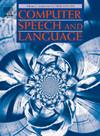Knowledge-enhanced meta-prompt for few-shot relation extraction
IF 3.4
3区 计算机科学
Q2 COMPUTER SCIENCE, ARTIFICIAL INTELLIGENCE
引用次数: 0
Abstract
Few-shot relation extraction (RE) aims to identity and extract the relation between head and tail entities in a given context by utilizing a few annotated instances. Recent studies have shown that prompt-tuning models can improve the performance of few-shot learning by bridging the gap between pre-training and downstream tasks. The core idea of prompt-tuning is to leverage prompt templates to wrap the original input text into a cloze question and map the output words to corresponding labels via a language verbalizer for predictions. However, designing an appropriate prompt template and language verbalizer for RE task is cumbersome and time-consuming. Furthermore, the rich prior knowledge and semantic information contained in the relations are easily ignored, which can be used to construct prompts. To address these issues, we propose a novel Knowledge-enhanced Meta-Prompt (Know-MP) framework, which can improve meta-learning capabilities by introducing external knowledge to construct prompts. Specifically, we first inject the entity types of head and tail entities to construct prompt templates, thereby encoding the prior knowledge contained in the relations into prompt-tuning. Then, we expand rich label words for each relation type from their relation name to construct a knowledge-enhanced soft verbalizer. Finally, we adopt the meta-learning algorithm based on the attention mechanisms to mitigate the impact of noisy data on few-shot RE to accurately predict the relation of query instances and optimize the parameters of meta-learner. Experiments on FewRel 1.0 and FewRel 2.0, two benchmark datasets of few-shot RE, demonstrate the effectiveness of Know-MP.
知识增强的元提示,用于少量的关系提取
少射关系抽取(few -shot relation extraction, RE)旨在利用几个带注释的实例来识别和提取给定上下文中头尾实体之间的关系。最近的研究表明,即时调整模型可以通过弥合预训练和下游任务之间的差距来提高少镜头学习的性能。提示调优的核心思想是利用提示模板将原始输入文本包装成完形问题,并通过语言修饰器将输出单词映射到相应的标签上,以进行预测。然而,为RE任务设计一个适当的提示模板和语言修饰器是繁琐和耗时的。此外,关系中包含的丰富的先验知识和语义信息很容易被忽略,这些信息可以用来构造提示。为了解决这些问题,我们提出了一种新的知识增强元提示(Know-MP)框架,该框架可以通过引入外部知识来构建提示来提高元学习能力。具体而言,我们首先注入头部和尾部实体的实体类型来构造提示模板,从而将关系中包含的先验知识编码为提示调优。然后,我们将每个关系类型的关系名称扩展为丰富的标签词,构建一个知识增强的软语言表达器。最后,采用基于注意机制的元学习算法,减轻噪声数据对小样本RE的影响,准确预测查询实例之间的关系,优化元学习器的参数。在fewrel1.0和fewrel2.0这两个少射RE的基准数据集上进行了实验,验证了Know-MP的有效性。
本文章由计算机程序翻译,如有差异,请以英文原文为准。
求助全文
约1分钟内获得全文
求助全文
来源期刊

Computer Speech and Language
工程技术-计算机:人工智能
CiteScore
11.30
自引率
4.70%
发文量
80
审稿时长
22.9 weeks
期刊介绍:
Computer Speech & Language publishes reports of original research related to the recognition, understanding, production, coding and mining of speech and language.
The speech and language sciences have a long history, but it is only relatively recently that large-scale implementation of and experimentation with complex models of speech and language processing has become feasible. Such research is often carried out somewhat separately by practitioners of artificial intelligence, computer science, electronic engineering, information retrieval, linguistics, phonetics, or psychology.
 求助内容:
求助内容: 应助结果提醒方式:
应助结果提醒方式:


